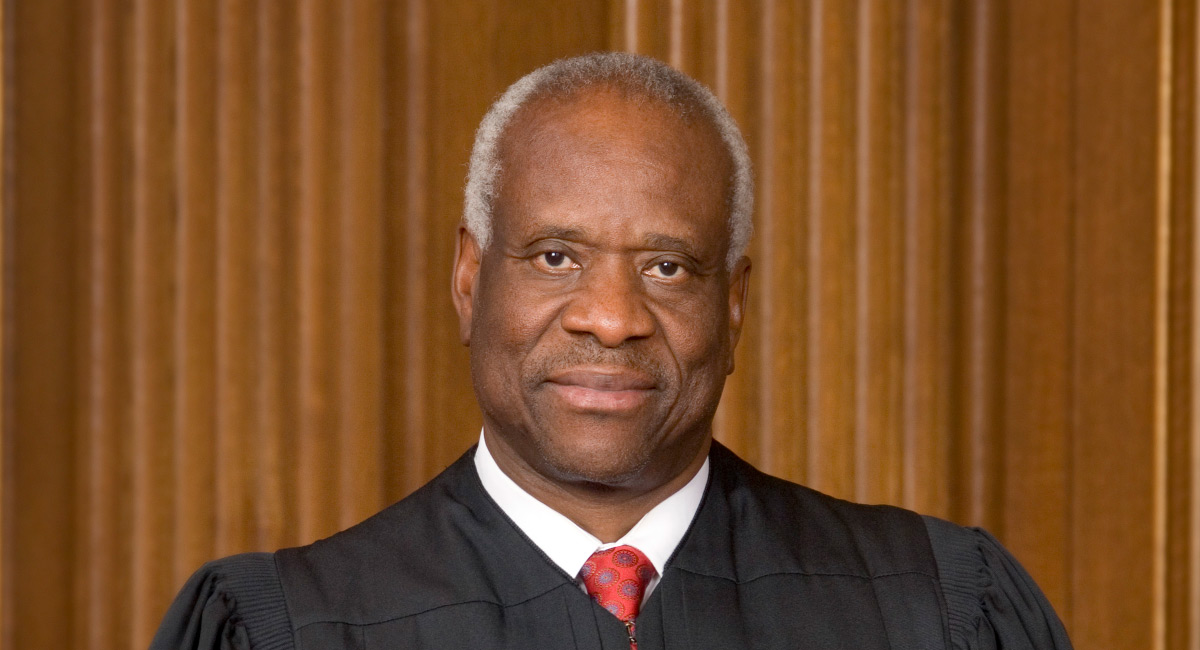Caterwauling and gnashing of teeth—that was the general reaction of the left to the decision in Dobbs v. Jackson Women’s Health Organization.
Dobbs, of course, held that the Due Process Clause of the Fourteenth Amendment does not protect a right to abortion. Writing for The Guardian, Jill Filipovic protested that the “court has just signaled its illegitimacy—and thrown the American project into question.” Jaime Harrison, chair of the Democratic National Committee, tweeted a call to arms: “So with everything we got & all that we are- each of us must end this tyranny on our rights!”
What really frightened the leftist legal establishment, however, is not the decision in Dobbs but a concurring opinion from Justice Clarence Thomas recommending that “in future cases, we should reconsider all of this Court’s substantive due process precedents, including Griswold, Lawrence, and Obergefell.” These are cases that, respectively, protect the right to use contraceptives, to have homosexual sex, and to homosexual marriage. Writing for Time, Madeleine Carlisle and Julia Zorthian described Thomas’s statement as “a seismic departure from how the Supreme Court has historically approached the right to due process.” Yale’s Katherine L. Kraschel called Thomas’s concurrence “an ominous preview of how far the Supreme Court may go to undermine existing constitutionally protected rights.”
Most Americans do not know what substantive due process is. At base, it is a doctrine originating in the latter 1800s allowing courts to import alien concepts into the Constitution and thus to strike state laws as unfair or arbitrary. The Dobbs majority did not challenge substantive due process, but instead simply followed a judge-crafted test to determine whether abortion was “deeply rooted in this Nation’s history and tradition” and “implicit in the concept of ordered liberty” such that it deserved special due-process protection.
Thomas, on the other hand, declared substantive due process to be “an oxymoron that lack[s] any basis in the Constitution.” Had Thomas his druthers, he would have simply ruled that “[b]ecause the Due Process Clause does not secure any substantive rights, it does not secure a right to abortion.”
The Due Process Clause at issue is found in the Fourteenth Amendment and provides that no state shall “deprive any person of life, liberty, or property without due process of law.” The idea of due process dates back to chapter 39 of Magna Carta, which avers:
No freeman shall be taken, imprisoned, disseised [dispossessed], outlawed, banished, or in any way destroyed, nor will We proceed against or prosecute him, except by the lawful judgment of his peers or by the law of the land.
By the end of the 14th century, Englishmen viewed “due process of law” and “law of the land” as interchangeable phrases. By around the 15th century, due process meant that before the government could punish a person for some act or omission, use of the courts and established procedures under pre-existing laws was necessary. Alexander Hamilton was clear about the scope of due process when writing in the late 1780s:
The words “due process” have a precise technical import, and are only applicable to the process and proceedings of courts of justice; they can never be referred to an act of the legislature.
In sum, “due process” refers primarily to judicial steps and procedures when a citizen is charged by government with some wrong.
As power gravitated to the national government after the War Between the States, the federal courts assumed a more aggressive role in American society. The Supreme Court latched onto the idea of substantive due process when reviewing state laws enacted to protect workers from the unpleasant side effects of the Industrial Revolution. Corporate lawyers, attempting to free their clients from state restrictions, argued that laws circumscribing business operations deprived corporations of due process because the laws were arbitrary.
The classic judicial statement accepting substantive due process is Lochner v. New York (1905). Lochner dealt with a New York statute prohibiting bakers from working more than 60 hours per week and/or 10 hours per day. The state argued that the statute was a simple exercise of the police power—the reserved power to pass general legislation for the health, safety, and welfare of the people. The High Court, however, held that the statute deprived bakers of liberty without due process of law inasmuch as the right to freely contract was a fundamental right protected by the Fourteenth Amendment.
Using substantive due process, the Court continued to carefully scrutinize economic legislation into the 1930s. The Court got out of the business of protecting liberty of contract when the aggressive review of New Deal legislation prompted President Franklin Delano Roosevelt to concoct a court-packing plan. Thereafter, the Court retreated from substantive due process in economic legislation, but it held on to the magic wand for individual-liberties litigation.
For example, in Griswold v. Connecticut (1965), the Court struck down an ancient state statute that prohibited access to contraceptives. Although different justices located a right to privacy in various parts of the Constitution—shadow zones from the Bill of Rights, the Ninth Amendment, and the Due Process Clause—the Court ultimately agreed that certain unenumerated rights are so fundamental that they cannot be transgressed by government. In dissent, Justice Hugo Black rebuked the majority with plain words of wisdom:
I do not believe that we are granted power by the Due Process Clause or any other constitutional provision or provisions to measure constitutionality by our belief that legislation is arbitrary, capricious or unreasonable, or accomplishes no justifiable purpose, or is offensive to our own notions of ‘civilized standards of conduct.’ Such an appraisal of the wisdom of legislation is an attribute of the power to make laws, not of the power to interpret them.
Lawmaking power is heady stuff that can only be checked by frequent elections. Because federal judges are not accountable at the ballot box, they have become hapless addicts with an unlimited supply of hubris. Thus, with the Due Process Clause in tow, we were given the fundamental right to abortion in Roe, to homosexual activity in Lawrence, and to gay marriage in Obergefell.
Progressives fear Justice Thomas’s assault on substantive due process, because without this judge-created doctrine, they would need to persuade fellow citizens and win elections to advance their agenda. It’s much easier to convince five lawyers belonging to the cultural elite that a liberal nostrum is fundamental than it is to convince middle Americans that immoral behavior is key to ordered liberty.
Unfortunately, it is doubtful that other members of the Court—liberal or conservative—are willing to admit that process is about procedure and not the creation of substantive rights ex nihilo. The majority in Dobbs went to great pains to distinguish Roe from other substantive due process cases and seemed to have little stomach for pushing the matter further.
Justice Thomas’s concurrence, however, has grabbed attention and sparked a conversation. Are we better off with a catchall Due Process Clause by which judges can constitutionalize their pet causes, or is the old-fashioned, already written Constitution to be preferred? Time will tell.












